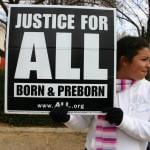The United Methodists meet this week in St. Louis to decide on their teachings about homosexuality, including whether or not to ordain non-celibate gays and lesbians and whether or not to perform same-sex weddings.
So any kind of sex outside of the marriage of a man and a woman is hard for Methodists to accept. The United Methodists are the only mainline Protestant denomination to not ordain practicing homosexuals and to not allow congregations to perform gay weddings. And yet the pull of the progressivism, with its new version of what constitutes morally upright living, is strong.
Methodists are greatly divided over the issue. So their representatives will meet in a special General Conference this week where they will vote on three options, two of which are ingeniously designed to keep the United Methodists “united” no matter what their stance on this issue. And one of the options would actually change the entire structure of the church body based on congregations’ different positions on homosexuality.
Here are the three options that Methodists will be voting on this week:
The Traditionalist Plan
Under this option, the church would make no changes in its Book of Discipline, which teaches that homosexual sex is sinful.
The One Church Plan
This option would allow individual congregations and ministers to decide whether or not to perform same-sex weddings. Some would and some wouldn’t. There would be no overarching policy or church teaching on the matter. Individual conferences–the regional, state-by-state governing bodies–would make the decision on whether they would ordain gays.
The Connectional Plan
This would set up three “connectional conferences” based on the different beliefs about homosexuality. Presumably you would have something like this, though I’m curious how they would be named:
- The United Methodist traditional morality conference
- The United Methodist pro-gay conference
- The United Methodist follow-your-own-sexual-beliefs conference
Congregations and ministers could affiliate with any of the three “connectional conferences” that they choose. If local churches don’t like their regional conference with its decision on gay ordination, they could switch to the jurisdiction of one of the “connectional conferences.”
Usually when a church body has decided to accept homosexuality, more conservative congregations break away to form their own denomination. But this Methodist scheme is designed to keep that from happening. None of the plans would mandate that all Methodists must approve of gay sex. Under the One Church Plan and the Connectional Plan, if a congregation doesn’t agree with embracing homosexuality, that’s OK. It can even join with like-minded congregations in its own affinity group. The United Methodists want to be “united” at all costs, even when there is no unity of teaching.
Of course, to be united with congregations that accept homosexuality, to agree that teachings on the subject do not matter, and to allow for at least some parts of the church body to ordain gays and to perform same-sex weddings is to accept homosexuality.
If gay ordination is allowed in some jurisdictions of the church, the church is allowing gay ordination. If some Methodist ministers are allowed to perform same-sex weddings, then Methodists allow their ministers to perform same-sex weddings.
Being “united” has to mean more than being in the same governing jurisdiction. Christians who have conflicting beliefs are not “united,” even if they co-exist in the same organizational structure. In fact, disagreements within an organization are the worst kind, as the conflict is always joined. Those who value “unity” would do better to group together with those of kindred beliefs. That might mean forming two–or three–separate organizations, but each of them would then be “united.”
How odd it is that a major church body is considering altering its own ecclesiastical polity and church government on the basis–not on the view of Scripture or different theological traditions–but on the various doctrines of homosexuality!
Illustration: Logo of the United Methodist Church, Public Domain via Wikimedia Commons














